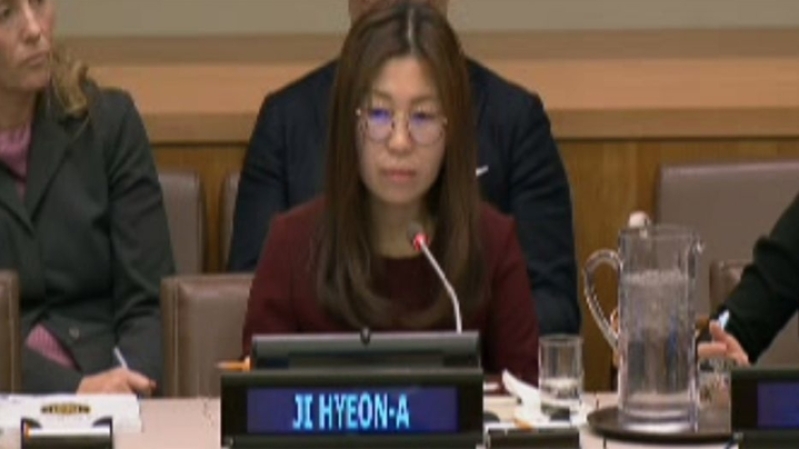
A North Korean defector opened up about the atrocities she endured in the isolated country, including how she was forced to have an abortion without medication following her repatriation from China.
During an event held by United States Ambassador to the United Nations Nikki Haley, Ji Hyeon-A shared how she was repatriated three times to North Korea after she was caught in China. She finally escaped to South Korea, but first endured unspeakable horrors at the hands of the North Korean government, Fox News reports.
The first time she was caught and returned to North Korea, Ji Hyeon-A was sent to a detention center, where she and other inmates were fed raw locusts, skinned frogs and rats as food. Sometimes, she witnessed inmates starve to death. Their dead bodies were then given to the guard dogs for food.
She described North Korea as "a terrifying prison and the Kim's are carrying out a vast massacre and it takes a miracle to survive there."
The third time Ji Hyeon-A was caught, she was three months pregnant with her first child. Because North Korea does not allow for mixed-race babies, she was one of hundreds of women forced to have an abortion without medication at a local police station.
"My first child passed away without ever seeing the world," she said, "without any time for me to apologize."
"Pregnant women were forced into harsh labor all day," she said. "At night, we heard pregnant mothers screaming and babies died without ever being able to see their mothers."
She finally reached South Korea in 2007 and has since been reunited with her mother, brother and her younger sister, but still has not heard news of her father.
Ji-Hyeon-A criticized the Chinese government for sending North Koreans back to the regime and urged the U.N. and world leaders to fight for North Korean defectors.
She recited a poem called "Is anyone there?" from a collection of poems she wrote.
"I am scared, is anyone there? I'm here in hell, is anyone there? I scream and yell but no one opens the door. Is anyone there? Please listen to our moans and listen to our pain. Is anyone there? People are dying, my friend is dying. I call out again and again but why don't you answer. Is anyone there?
The event, titled "The Terrifying experience of forcibly Repatriated North Korean women," was sponsored by the U.S. France, Japan, South Korea, Canada and the U.K.
Haley said such stories need to be heard: "The regime is using that power to develop an unnecessary arsenal and support enormous conventional military forces that pose a grave risk to international peace and security," she said. "Their menacing march towards nuclear weapons begins with the oppression and exploitation of ordinary North Korean people."
Open Doors has ranked North Korea as the most oppressive place in the world for Christians, #1 on the World Watch List. It's estimated that between 30,000 and 70,000 Christians are held in "kwanliso," or political labor camps.
The human rights group Christian Solidarity Worldwide has called on the Chinese government to refrain from repatriating the defectors, as the Kim regime shows little mercy to citizens who leave the country. After assuming power in 2012, leader Kim Jong-un instituted a policy of "death for those involved in defections," while others are sent to prison camps.
"Forcibly repatriating North Koreans to their country violates the international humanitarian principle of 'non-refoulement' and risks sending people to their deaths," CSW Chief Executive Merwyn Thomas said in a statement. "Even if not actually executed, the conditions of torture and abuse in North Korean detention centres and prison camps are so severe that imprisonment amounts to a death sentence."






